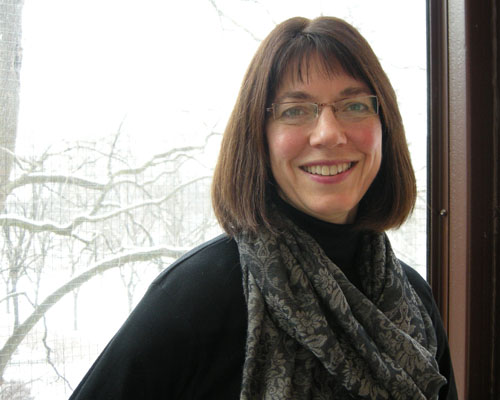
“People think accounting is about numbers, and at first glance it is. But what lies beneath is human behaviour and judgment, and I want to understand more about human behaviour through an interdisciplinary lens,” says Sandra Scott, newly appointed professor in the Department of Business.
One area of human behaviour that’s caught her attention is related to tax policy. A case in point is the the recent election victory of Toronto mayor Rob Ford, who has vowed not to increase taxes but promised to expand infrastructure construction in his campaign. The paradox, Scott says, is that “nobody wants to pay more taxes, but people do want to see services maintained, and often increased. I think humans are generally pretty rational, and it should be obvious that the system can’t be sustained if we all take services and don’t contribute enough through our taxes.”
However, some people don’t seem to make that connection, and Scott wants to understand more about why people behave this way. She’s collaborating with Thaddeus Hwong of York University in a multi-year empirical research project to run experiments on taxpayers’ attitudes toward paying taxes. “We have to think about the human costs of keeping taxes low, not just the dollars and cents,” she stresses.
Scott brings an interdisciplinary perspective to this research. She has an undergraduate degree in chemistry and an MBA from McMaster University; she’s a chartered accountant (CA) and chartered financial analyst (CFA) who has worked for Nortel and Deloitte and Touche.
Her move into accounting happened after she’d earned her chemistry degree and was working for a chemical company. “They had a full-time job available for an accountant in the production area, and thought I would be a good candidate because I understood the production processes,” Scott says. She realized that “accounting makes sense to me” and decided to pursue her MBA and CA to support the new path her career was taking. She earned her CFA while at Nortel.
“I’ve found that I just like to study and learn all the time,” Scott says. “I’d probably have more designations, except I soon realized that the more designations you have, the more annual fees you are obliged to pay.”
Scott’s two children, now 14 and 11, were born while she was working at Nortel.
She began teaching accounting part-time at York University and was soon offered a full-time position. “I really enjoy teaching. It challenges me; it makes me stay current. I had imagined I’d teach part-time for a couple of years while my children were small and then I’d go back to the ‘real world.’” But discovering how much she loved teaching and York’s willingness to allow her flexible hours encouraged her to take the position. After two years, she became the undergraduate program director.
Scott had met U of G professor Fred Pries, Department of Business, at conferences. So when he told her that the University was launching an accounting major and needed more faculty members to teach accounting, Scott was eager to apply.
The popularity of the new accounting major is already evident. The intermediate accounting course Scott is teaching this term had 120 students last year; this year 200 students are enrolled, and more had to be turned away because there wasn’t room. “The demand is very strong,” says Scott. She also teaches for the Institute of Chartered Accountants of Ontario.
She’s enthusiastic about the shift she made from working in accounting to academia. “I loved working at Nortel, and I learned so much there. I gained a real depth of knowledge and experience that I draw from today, but now as a professor I can take a broader view of accounting. When you are working for a company, you tend to get heavily bogged down in the company’s details. When you are teaching and researching, you have a more comprehensive perspective.”
She says moving to the University of Guelph was an excellent decision. “I feel like I’ve won the lottery when it comes to finding a perfect fit,” she says.
When not working, Scott chairs the parent council at her children’s school. She and her family enjoy what she calls “interesting vacations.” The family has canoed down the Trent River system, cycled around Campbellford and Sterling, Ont., and gone canoe-camping in Algonquin Park. They have climbed to the top of Gros Morne in Newfoundland and to the top of Carrantuohill, the highest mountain in Ireland. “You could say that we like to climb large hills,” jokes Scott. “These aren’t mountains on the scale of Everest, but we like to do one thing on each vacation so we can say, well, we accomplished that.”